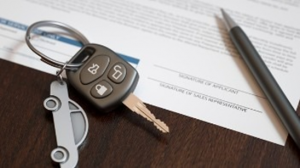
Contact your Lender Promptly – If you are concerned about missing a car payment you should contact your lender as soon as possible. Many banks, auto manufacturer lenders, and other creditors have emergency relief programs to help borrowers who have been impacted by COVID-19. Borrowers who communicate early and honestly with their lenders demonstrate good faith and a good lender will work with you to keep your account in good standing. IMPORTANT: Make sure to get any new agreement in writing, communicate by email with the lender, and be sure to keep it all!
Monitor credit reports – Consumers who enter into a relief program or reach an agreement with their auto lender should monitor their credit reports to ensure their loans are not being reported as past due or delinquent. You can check your credit report history weekly without charge, go to www.annualcreditreport.com, this is generally the best place to get a free credit report from Experian, TransUnion, and Equifax, get all three!
Sell the car if it makes sense – Selling before repossession takes place can be an option. Typically, the vehicle will sell for a better price than at a repossession sale and the consumer will not have to pay the creditor’s fees and expenses. Avoiding repossession will also be better for consumers’ credit. Keep in mind, consumers who sell their cars before repossession must use the proceeds from the sale to pay back the creditor.
Watch out for scams – When looking for refinancing options or other forms of assistance, consumers should be wary of loan modification scams. As the Federal Trade Commission (FTC) reports, these fraudsters claim they can negotiate with a consumer’s lenders and lower their payments for a fee. Too often though, they collect their fees and never actually do what they say they will. Consumers should steer clear of any companies making bold promises and try talking to their lenders themselves first.
Talk to a credit counselor – Consumers who are behind on their car loans due to COVID-19 may be behind on other bills as well. Consumers who are finding it difficult to manage their finances should consider talking to a reputable credit counselor. A credit counselor can help consumers develop personalized plans to address their financial problems, including their car loans. The FTC has more information on choosing a credit counselor here.
Monitor the repossession process – Repossession agents that arrive to take a vehicle must act respectfully. They are prohibited from engaging in destructive conduct, such as threats or physical abuse that would “breach the peace.” Another example is if personal items are missing from the vehicle after it is repossessed. Creditors can be held liable for harmful conduct that occurs during the repossession process. Document any incidents that occur during repossession.
What happens after a vehicle sale? – Usually, repossessed vehicles are sold for less than the amount the consumer still owes. When that happens, the creditor can come after the consumer for the remainder. Consumers who have been sued by a creditor or have suffered harm from a repossession should consult with an attorney as soon as possible to understand their options.
File a complaint – Consumers can file complaints about their auto lenders with the Federal Trade Commission or the Consumer Finance Protection Bureau. When the CFPB receives a complaint from a consumer, it sends the complaint to the complained-about company, which is then urged to respond to the consumer and the CFPB within a reasonable time.
Seek legal assistance – If all else fails, consumers who are mistreated by their auto lender should consider finding a consumer attorney to help them. More than 60 million Americans qualify for free legal aid due to their income status. Qualified consumers can look for free legal aid here. There are other ways to find a consumer attorney, such as through the National Association of Consumer Advocates, here: NACA directory.







